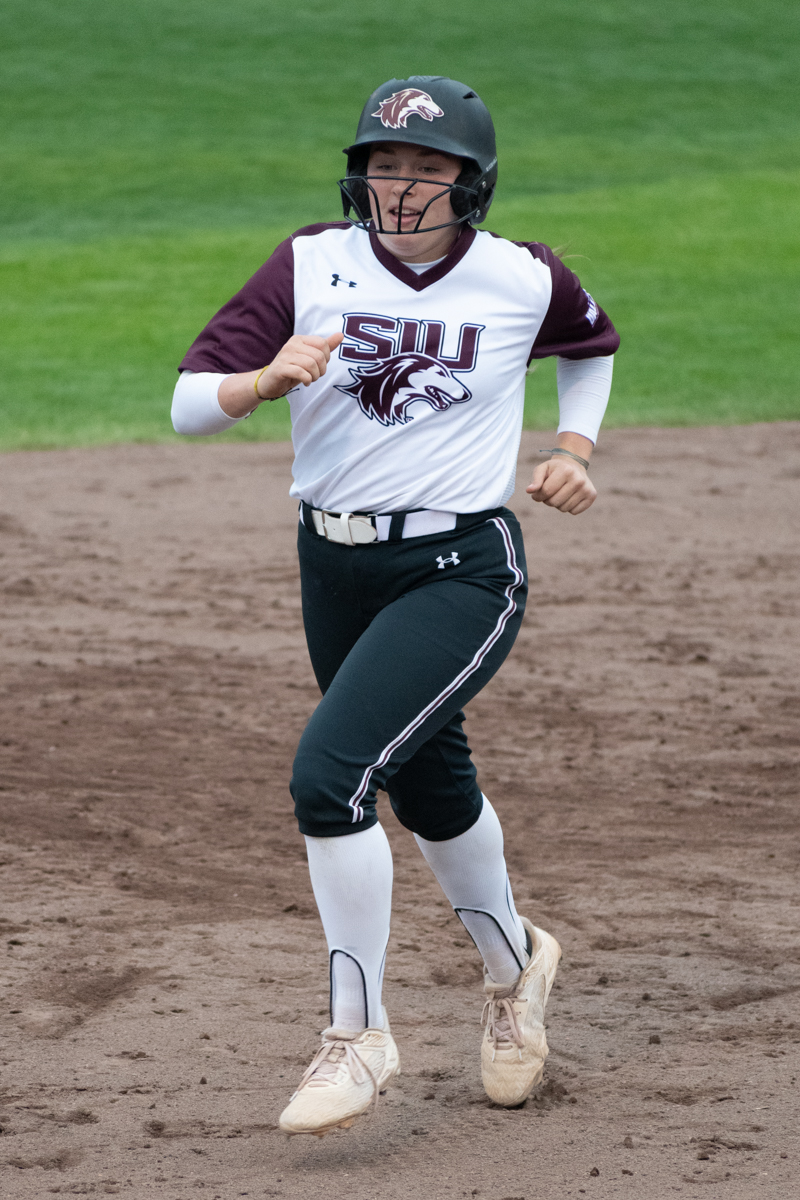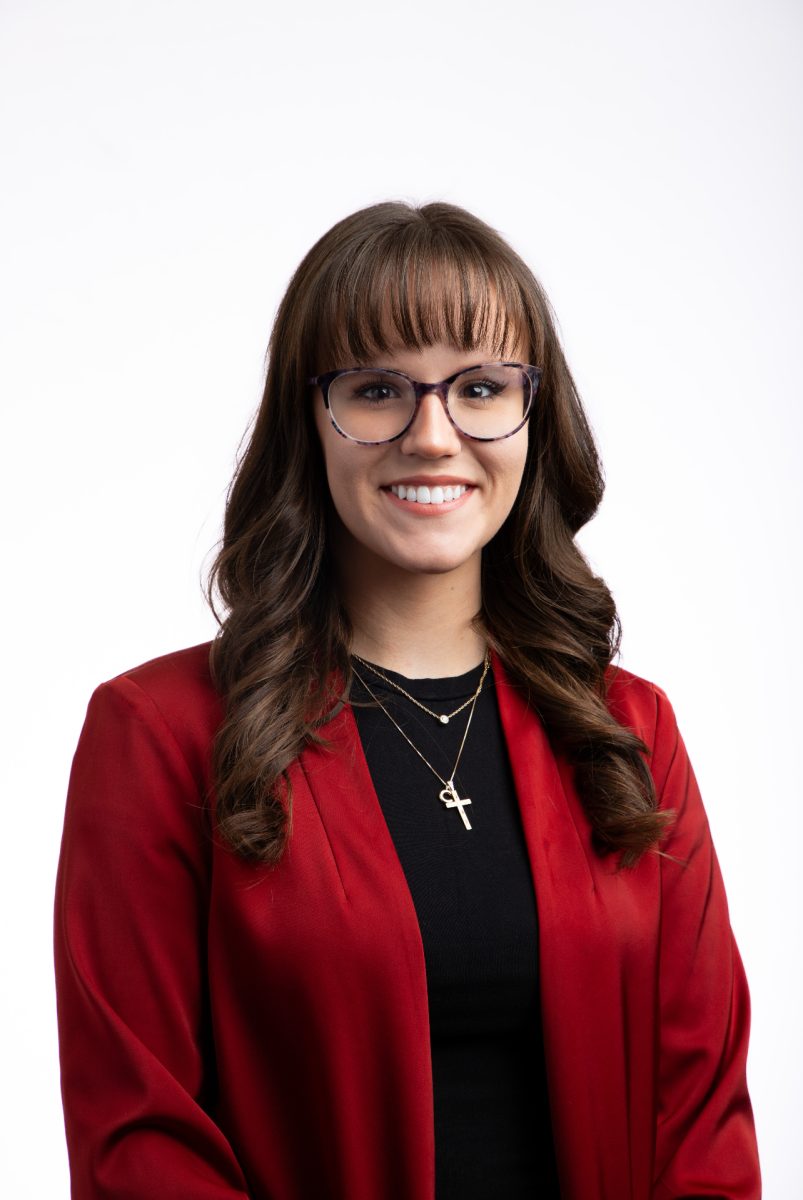Resident assistants speak out against work conditions, pay
September 18, 2020
Editor’s Note: The identities of some of the sources in this story are anonymous because the resident assistants involved feared retaliation and losing their jobs.
SIU resident assistants say they are being overworked and underpaid and claim the university is not adequately protecting their health during the COVID-19 crisis.
The Daily Egyptian tried to contact Jon Shaffer, director of housing, for comment on this story six different times via voicemail, leaving a message with his assistant and by sending him four emails. He did not respond.
Advertisement
Student housing employees say they have been instructed not to talk to the media.
According to the Housing Student Employee Agreement, housing employees are not to represent housing to the press or media unless they are told to do so directly.
Because of this agreement, RA’s have been told not to speak to the media and have expressed a fear of retaliation for speaking publicly to the Daily Egyptian, and have asked to remain anonymous now and in the past.
Examples of this include the DE’s story on RA’s being instructed to keep quiet about COVID-19 outbreaks on campus and RA’s who spoke out about their desire to hold a second job.
See more: SIU will not be informing the public of COVID-19 outbreaks on campus; RAs told to keep quiet
See more: RAs seek ability to get a second job, gain student trustee and GPSC support
Phynix Huhn-Simmons, a former RA who spoke out against housing policies, said in an interview with the DE that housing fosters “a culture of silence” and that RAs were not allowed to talk to the media.
Advertisement*
“They tried to silence me and my co-workers and people who thought like me,” Huhn-Simmons said. “Housing definitely has this culture of silence and I understand where the rule came from, it was to protect students and abide by the FERPA law but they took it and used it to silence their student employees.”
Sally Jones, a RA that requested to be anonymous, said if RAs were told they would face “major repercussions” if they were caught discussing COVID-19 precautions.
“All of us assumed that they would fire us,” she said.
Jane Doe, a RA who requested to be anonymous, said this year in particular has been hard for RAs.
“We’re still required to do a lot of stuff that doesn’t seem safe,” she said. “Housing is prioritizing helping the freshmen make friends over RA’s safety.”
There are not many mandates in place to keep RAs safe from the coronavirus other than face masks, Doe said.
Jane Doe said while she is uncomfortable going to the dining halls because of the coronavirus, she is required to go to a house meal once a week regardless of whether or not her residents come.
Jones said house meals are the responsibility she’s most uncomfortable with.
“They’ve told high risk students that they have no choice but to go to the dining hall because the computer system can’t handle it or we can’t afford it,” she said.
Jones said housing has told worried students that they will not be accommodated and that they will have to “make sacrifices”.
“Students should not be having to sacrifice when they want to eat just because housing won’t help them,” Jones said.
Resident assistants requested hazard pay during move in and were denied by Shaffer, Doe said.
Eight different RAs were told they would lose their jobs if they informed others that there is a COVID-19 case on campus.
See more: SIU will not be informing the public of COVID-19 outbreaks on campus; RAs told to keep quiet
As long as no personally identifiable information is given, schools are allowed to release general information such as the number of cases, according to the Family Educational Rights and Privacy Act.
Jones said during training week, superiors were allowed to use video calls to ensure social distancing, but RAs were not.
“They didn’t care about our safety and jammed at least 17 of us in one room for training and then made us gather for move in,” Jones said. “We didn’t get paid enough to deal with the major possibility of getting sick.”
Jones said masks are the only protection and instruction they are given by housing.
Jones said Shaffer wanted to make RAs work three hours in the dining halls without pay because they are understaffed, but hall directors discouraged the decision.
“That would have started an outright riot with the RAs,” Jones said. “We already don’t feel safe or appreciated and then they were going to force us to work like that putting us in the most high risk area to get infected.”
Jones said RAs were given the opportunity to get paid to deliver meals to quarantined students, but it made her feel like housing is putting RAs at risk to make their own jobs easier.
John Smith, another anonymous RA, said he does not think he gets paid enough.
“I get paid about $124 a month which is interesting because some people get paid a lot less than me,” Smith said. “I have the same position, I filled out the same contract as them, but they get paid less than me.”
Jane Doe said she gets paid $118 a month while working the required 20 hours a week and it covers very few of her necessities especially when she is unable to go to the dining hall.
“We would ask [housing] about [unequal pay] and they would say ‘it’s a difference in taxes’, but we all opted not to have taxes taken out,” Doe said.
Sally Jones said for the work RAs do they are not paid minimum wage. Resident assistants make approximately four dollars a day which adds up to roughly $120 a month. If paid minimum wage, $10, they would receive $300 a month.
According to the U.S. Department of Labor, student residential assistants are exempt from minimum wage because they receive reduced room and dining charges.
“If I was solely surviving off this salary there’s no way I’d have enough money for anything like food, pads, or laundry detergent,” Jones said.
John Smith said instead of paying RAs more they should cut back on the jobs they are given.
RAs can only have a second job on campus and the only job that is discussed is working five hours at Trueblood, he said.
In May of 2019, RAs were given the option to have a second job anywhere on campus up to five hours a week.
RAs were only given five hours because SIU only allows student workers to work 20 hours a week.
See more: SIU changes housing employment policy, allows RAs to have second job
According to the student employment handbook, during summer semester and breaks student employees are allowed to work 37.5 hours a week. RAs can work five hours at an on campus job and academic peer advocates can work 10 hours a week.
John Smith said he works 20 hours a week, but broke 70 hours during training week. Jane Doe and Sally Jones said they work about 40 hours each week.
Jones said when on duty, RAs are basically working for 24 hours because they have to be on call if students need them.
There is no way for RAs to keep track of their work hours and they get paid by what housing thinks they deserve, Jones said.
“It seems like a lot of this job is more than necessary, but it’s a lot worse than what I expected,” John Smith said. “They expect us to do bulletin boards and stuff like that off the clock and we don’t get paid extra for it.”
Jane Doe said her biggest problem is she feels housing has no respect for RAs and does not see them as people.
“A lot of my frustrations that are building recently is because of the pandemic they’re adding so many more extra responsibilities to RAs who get the same amount of pay,” she said.
Staff reporter Keaton Yates can be reached by email at kyates@dailyegyptian.com or on Twitter @keatsians.
To stay up to date with all your southern Illinois news, follow the Daily Egyptian on Facebook and Twitter.
Advertisement






